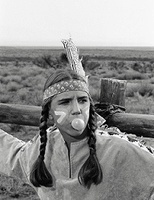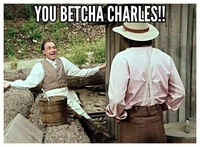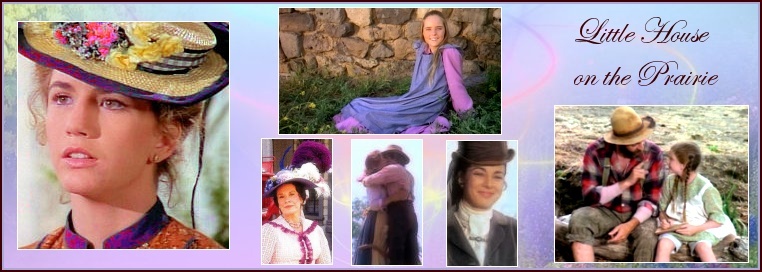|
| | The craftsmen. |  |
|
+3Davetucson littlehouselover Krissy 7 posters | | Author | Message |
|---|
Krissy
Ingalls Friend for Life


Number of posts : 45733
Location : Ontario, Canada
Mood : 
 |  Subject: The craftsmen. Subject: The craftsmen.  Sun Dec 18, 2011 10:38 pm Sun Dec 18, 2011 10:38 pm | |
| albert becomes friends with a old jewish men. The school children make fun of him.  “Tomorrow is a new day with no mistakes in it... Yet.” ― L.M. Montgomery, Anne of Green Gables “Tomorrow is a new day with no mistakes in it... Yet.” ― L.M. Montgomery, Anne of Green Gables | |
|   | | littlehouselover
Walnut Grove Resident


Number of posts : 1064
 |  Subject: Re: The craftsmen. Subject: Re: The craftsmen.  Sat Jun 16, 2012 4:59 pm Sat Jun 16, 2012 4:59 pm | |
| I liked this show and how the craftsmen showed Albert a good work ethic and how to give back.
Michael Landon tried to show bigotry and how wrong it is many times and and in this show he did a good job dispelling old prejudices and stereotypes. The two of them had a nice relationship and although sad, was a good show. | |
|   | | Davetucson
Ingalls Friend for Life


Number of posts : 9374
Location : Helena, Alabama
Mood : 
 |  Subject: America's Jewish Angel Subject: America's Jewish Angel  Sat Aug 16, 2014 2:56 pm Sat Aug 16, 2014 2:56 pm | |
| Marvelous article about “The Craftsman” written by Peter Manseau in 2011. Great Read!
Touched by a Michael Landon: America’s Jewish Angel
When actor, producer, and director Michael Landon died 20 years ago today, many in Christian America thought they had lost one of their own.
After all, this was the man responsible for Highway to Heaven, the weekly extrusion of spiritual melodrama that first convinced network executives that American viewers would enjoy being touched by an angel. If further proof were needed, Landon appeared on The 700 Club describing feeling “electric” when playing the God-fearing icons of family values. Much of his oeuvre is now distributed by an evangelical publishing house.
Although Christian themes in his work are undeniable, beneath Landon’s Christian messages there is a surprisingly Jewish sensibility awaiting recognition. This claim goes deeper than either his ethnic background or his famously biblical mane. Landon, born Eugene Maurice Orowitz, was the son of a Catholic mother and a Jewish father; but this isn’t a matter of whether or not he was really Jewish. Rather, a close look at some of the television he produced reveals how a pop idol embraced by the mainstream smuggled a minority religion into primetime.
In a 1979 episode of Little House on the Prairie (based on the Little House books by Laura Ingalls Wilder) the 19th-century town of Walnut Grove, Minnesota hosts an unlikely guest: an elderly Jewish carpenter whose specialty is building coffins without nails. Among the most popular episodes of the long-running series, “The Craftsman” tells the story of Mr. Singerman, an Eastern European immigrant who takes on as his apprentice the adopted son of the Ingalls family (played by Matthew Laborteaux, himself adopted). Having sent his only child back East to marry a woman he’s never met (in Minnesota, Singerman’s adult son complains, “there isn’t a Jewish girl for five hundred miles”), the widowed craftsman finds in young Albert Ingalls an eager pupil not just of woodworking, but of Judaism and life.
True to the message of tolerance that is typical of the series, Albert soon learns the Jewish coffin maker is not so different from his Christian family. Jews, too, value faith and tradition. Jews, too, take pride in their work. And contrary to the taunts of Albert’s classmates, Jews do not have horns.
Yet Albert also learns that there is at least one way in which Jews are different from the Christians of Walnut Grove: they have their own language. Yes, they speak late-20th-century American English like everyone else in this Hollywood backlot version of the frontier, but they also seem to have an endless supply of secret words with private meanings.
“There is a Jewish word, rachmones,” Mr. Singerman says, explaining an unexpected act of charity Albert has just witnessed. “It means in English ‘compassion.’ Life without rachmones is not worth living.” A few minutes later, while planting an acorn to take the place of the lumber he uses to build his coffins, he says, “A craftsman must not be a shnorer—a shnorer is someone who takes and takes but never gives back to the world.”
Other times, his Jewish words are less pious, making the character an occasional source of comic relief. Mr. Singerman calls out after a troublemaking boy who knocked a walking stick from another man’s hands, “Give him a klop for me!” And when guileless Albert asks if it’s true, as his classmates have told him, that Jews wear hats to hide their horns, the craftsman hoots with laughter at once sad and wise. “Horns? Mishugas!”
A new “Jewish word” is heard in nearly every scene shared by Albert and Mr. Singerman. Some, like rachmones and shnorer, are translated in the dialogue that follows. Others, like mishugas and klop, are used without explanation, relying on context and the familiarity with Jewish culture that had grown in the United States throughout the 1970s; thanks in large part to pop culture phenomena like the 1971 film Fiddler on the Roof and the 1978 television miniseries The Holocaust, which was broadcast eight months before “The Craftsman” on NBC.
The Unlikely Shtetl of Walnut Grove
While much of Mr. Singerman’s Jewish terminology seems calibrated to heighten his otherness within Walnut Grove—while stopping short of alienating the non-Jews who were the vast majority of the Little House audience—the episode’s most significant display of a “Jewish word” occurs in such a way that it would have been entirely undecipherable to those without a background in Jewish languages. As the craftsman puts the finishing touches on a coffin he has built (a coffin that will turn out to be his own), he sings a lilting foreign tune to his young apprentice:
Oyfn pripetshik brent a fayerl,
Un in shtub iz heys.
Un der rebe lernt kleyne kinderlekh
Dem alef-beyz.
Zet zhe, kinderlekh, gedenkt zhe, tayere,
Vos ir lernt do…
To name a character “Singerman” and then to have him sing is undoubtedly to draw attention to any tuneful words put in his mouth. These words, however, are used without translation, and so only for a tiny fraction of Little House viewers would their significance have been apparent. Yiddish speakers would have known that this was a song about the young learning from the old, and the place of ancient knowledge in the modern world.
In the fireplace
A little fire burns
The schoolhouse is hot
As the teacher teaches little children
The Hebrew alphabet
Look, my children, remember, my dears
What you learn here…
“Oyfn Pripetchik” is among the most enduring folk tunes of Eastern European Jewish culture. Written late in the 19th century by the Russian Jewish lawyer Mark Warshafsky, the song was made famous by the father of Yiddish literature, Sholem Aleichem, who wrote an introduction to the first published edition of Warshafsky’s songs. [For more on this unlikely composer of folk songs, check out James Loeffler’s The Most Musical Nation: Jews and Culture in the Late Russian Empire.] In the United States, especially, it became an aural symbol for the world that was lost in the Holocaust. Fourteen years after “The Craftsman,” it was used to score an indelible moment in Stephen Spielberg’s Schindler’s List, in which a little girl in red runs unnoticed through the black and white world of Nazi-occupied Poland. Only later do we see her in a pile of bodies.
Despite its frequent dramatic use as a death knell, the popularity of “Oyfn Pripetchik” continues no doubt thanks to its theme of the resilience of Jewish memory. Following the lyrics above, the point at which the singing stops in “The Craftsman,” the song goes on to suggest what has become a truism of Jewish culture: that the letters of the Hebrew alphabet are a talisman of survival.
When you grow older, children,
you will understand,
how many tears lie in these letters
and how much crying.
When you carry on the exile, children,
in torture,
you will gain strength from these letters
look inside them!
Learn with enthusiasm, children,
as I instruct you.
The one who learns Hebrew best
will receive a flag.
A Yiddish song about learning Hebrew, “Oyfn Pripetshik” serves as a narrative account of the place of scriptural learning within the folk vernacular. The tune sung by the coffin maker, then, signals a moment of unexpected cultural transmission. Just as the song describes kheder boys learning to value Jewish tradition from a rabbi in a doomed Eastern European village, the young Christian Albert Ingalls now learns these same lessons in the unlikely shtetl of Walnut Grove.
The only problem with how well all of this fits together is that, historically speaking, to hear “Oyfn Pripetshik” in Laura Ingalls Wilder’s Minnesota would have been impossible. While Little House is set in the 1870s, “Oyfn Pripetshik” was only written in 1890, and didn’t become popular in the U.S. until the twentieth century. Moreover, while composed in the style of a folk ballad that might be overheard in a Russian Jewish village, the song was written at a time when the gauzy view of Jewish life it offers was already decades out of date. “Oyfn Pripetshik” is about as close to as a reliable depiction of the world an immigrant like Mr. Singerman would remember as Little House on the Prairie is to a snapshot of the American frontier—which perhaps makes it even more appropriate than the creators of the show intended.
Are you a Jew? I’m a Jew!
Obviously, the anachronistic use of a song that was itself anachronistic on a television show that trafficked in well-meaning revisionist history can tell us nothing about American Jewish culture in the last quarter of the nineteenth century. Yet the story of how “Oyfn Pripetshik” came to be sung in Walnut Grove may tell us something about the enduring place of Jewish languages in American culture today.
“The Craftsman” was the first television job for a young writer named Paul Wolff, now a professor of screenwriting at the University of Southern California. Wolff’s big break came when his agent secured for him a meeting with Michael Landon.
As Wolff recalls, he had written a short story about a coffin maker who didn’t use nails. In the first draft, Wolff’s craftsman wasn’t explicitly Jewish, but he was, Wolff says, someone like his grandfather. “He was a worker, not a scholar,” Wolff explains. “A lot of the Jews who went West were craftsmen because those were the types of skills required at the time.”
With this in mind, as Wolff prepared for his meeting with Landon to propose the story as the basis of an episode of Little House, he considered suggesting his coffin maker might be a Jew. He decided otherwise when, upon entering Landon’s production offices, he saw a bulletin board with the names of people associated with the show. As far as he could tell, there were no Jews listed, which to Wolff guaranteed that the idea of a Jewish craftsman might not get very far.
When Landon responded positively to the story, however, the writer felt compelled to make his suggestion. After he did so, Wolff recalls, “Michael Landon looks at me and says, Are you a Jew? I’m a Jew!”
While no secret, it was not very well known at the time that Landon had endured anti-Semitic taunts and bullying in his youth, but when he began his acting career he borrowed a screen-ready stage name from the Los Angeles telephone directory. “He was serious about who he was, about being Jewish,” Wolff remembers of the impression Landon made during that first meeting. “He had been looking for a way to announce it to the world.”
According to Wolff, “The Craftsman” became that way. Singerman was a Jew dropped into the mythology of the American West, much as Landon himself had been as a star of Bonanza. Notes Wolff, who went on to write regularly for Little House, “I see that episode as really standing on its own, apart from the rest of the series.”
Moving from pitching the story to writing it, Wolff took the authenticity of his Jewish pioneer seriously—or perhaps as seriously as a network television writer could. For the “Jewish words” with which Singerman would sprinkle his conversation, Wolff turned to Leo Rosten’s 1968 bestselling humor book The Joys of Yiddish.
“Oyfn Pripetshik,” however, came not from Wolff, but from Landon himself—with the input of the series’ composer David Rose, who was, Landon told Wolff, “a real Yiddishkeyt guy.” Unlike the episode’s writer, its director was a Yiddish speaker. And perhaps like all Yiddish speakers in America, Landon was aware of the implications of using Jewish languages in a place where other elements of Jewishness seemed easily shed. In a 1982 interview, he recounted the sense of unease he sometimes felt among non-Jews, even those with whom he worked closely:
I can remember riding in a car from location with guys I’d known for fifteen years, and I told a joke. I’m sitting in the front seat, I’ve been thinking about [the discomfort] and it’s been bothering me all day. I tell the joke and I give them the punchline in Yiddish, right? I’ve got a car full of gentiles and they haven’t got the slightest notion, not the slightest notion what that punchline is, and everybody laughed. I looked around and asked, ‘Why did you laugh? What’s funny?’ And they said, ‘Because you told it and you’re the boss.’
Even though he had spent decades in Hollywood by this point, when Michael Landon wanted to test the waters of difference separating him from “a car full of gentiles,” he knew to use Yiddish. In life, as in Little House, American Jews of Landon’s generation knew they were defined at least in part by language. It was natural, then, that when Landon finally told a Jewish story in his chosen medium, Yiddish would be used as a boundary, a marker of particular identity.
Yet the meaning of any boundary depends on which side you’re on. Landon seems to have known that the use of Yiddish on the prairie could convey two messages simultaneously.
The first, intended for any of his millions of viewers, was that “Jewish words” were those that concerned survival and tradition. Each one, when spoken to the receptive ears of young Albert Ingalls, signaled the thematic presence of the most ubiquitous Jewish word of all: continuity.
The second message, offered mainly to those who understood the implication of Singerman’s song, was more subversive. It was the same message that might have crossed the mind of Eugene Maurice Orowitz when he pulled the name “Michael Landon” from the phonebook more than twenty years before: that in America, continuity might mean something different than it had in earlier Jewish generations; that in America, continuity could not exist without change.
It’s worth remembering on the anniversary of Michael Landon’s death that the man otherwise known as Little Joe Cartwright, Charles Ingalls, and the angel Jonathon Smith had a yiddishe kop under that nice head of hair.  "Albert, do you REALLY think you are old enough to know what love is?" "Albert, do you REALLY think you are old enough to know what love is?"
"I must be Pa. I love you, I have for a long time." | |
|   | | littlehouselover
Walnut Grove Resident


Number of posts : 1064
 |  Subject: Re: The craftsmen. Subject: Re: The craftsmen.  Sat Aug 16, 2014 5:00 pm Sat Aug 16, 2014 5:00 pm | |
| Thanks Dave, I loved that show and wished it could have touched so many more with it's message. | |
|   | | LauraIngallsfan
"Psalm 73"


Number of posts : 9265
Location : South Dakota
Mood : 
 | |   | | Honeybee
Ingalls Friend for Life


Number of posts : 3579
Location : Michigan
Mood : 
 |  Subject: Re: The craftsmen. Subject: Re: The craftsmen.  Thu Apr 14, 2016 10:06 pm Thu Apr 14, 2016 10:06 pm | |
| The prank, they pull on Willie & Nellie. I was laughing so loud, when I was watching this episode.
Mr. Larbees: Charles, I just want you to know, your son with a Jew.
Charles: He has my permission.
Jonathan: You know, what offends me?
Mr. Larbees: What's that?
Jonathan: Rednecks.
Mr. Larbees: *rubs out of the mill.*
I was doing this by memory. If, anyone has the same quote, from the mill scene. They can post it. | |
|   | | Kristina
Ingalls Friend for Life


Number of posts : 7892
Mood : 
 |  Subject: Re: The craftsmen. Subject: Re: The craftsmen.  Thu Feb 23, 2017 5:51 pm Thu Feb 23, 2017 5:51 pm | |
| This episode was on COZI-TV last night and each time it came back from commercial break, before the show actually came back on there was a message that said "this show contains historically accurate language which may be offensive to some viewers." I never thought LHOTP would have a message like that before an episode, but I still think the episode gave an important lesson that is still accurate today. | |
|   | | amyk
Frontier Traveler

Number of posts : 560
 |  Subject: Re: The craftsmen. Subject: Re: The craftsmen.  Wed Aug 21, 2024 9:02 pm Wed Aug 21, 2024 9:02 pm | |
| I just watched this episode, recorded from COZI-TV. They had this warning at the beginning and at least once when they returned after a commercial that there was language in it that was historically accurate but that could be.....I cannot remember the exact wording, but something like some people may find it offensive. Maybe they did use the word "offensive." (Oh, I wrote this before reading the post above mine, which cites this same "warning.") The only thing I could figure that they may have been referring to was when the bad kids were calling Albert a "Jew boy" and then when Nellie and Willie were talking about all Jews having horns on their heads. I guess this is what they would have been referring to. Oh, Laura also once said something about hating Jews, but Pa set her straight.
Anyway, generally I like this episode, although some of the details don't really make a lot of sense to me. Once again, we are introduced to these people who seem to be known around town but who we have never heard of before. I also thought that the father could have just gone with his son to New York. And I wondered how they came to have settled out there in Walnut Grove area?
Another thing I thought kind of odd was that Pa paid the craftsman (Mr. Singerman? Was that his name?) to make a chair. Why didn't Pa just make it himself?
But I did like the way the episode was trying to tackle bigotry and anti-Semitism. And I feel like the cinematography in this episode was really good.....there was, for example, a scene that started on the seed on the windowsill and then panned out which seemed like something that would have been in a movie.
And isn't it hilarious how much Nellie was anti-Semitic in this episode, considering how she ended up marrying a Jewish man?
The one thing I didn't really love was how Albert tricked Nellie and Willie into coming to see "the horns" - while it's always nice to see Nellie and Willie scared or tricked, to me this just reinforced to them that Jews have horns. I would rather have had Albert just tell them the reason that the man said he kept his head covered, although they probably would not believe it. I thought that was rather nice, what he said, something about remembering that there is someone above man (something like that). | |
|   | | Sponsored content
 |  Subject: Re: The craftsmen. Subject: Re: The craftsmen.  | |
| |
|   | | | | The craftsmen. |  |
|
| | Permissions in this forum: | You cannot reply to topics in this forum
| |
| |
| |
